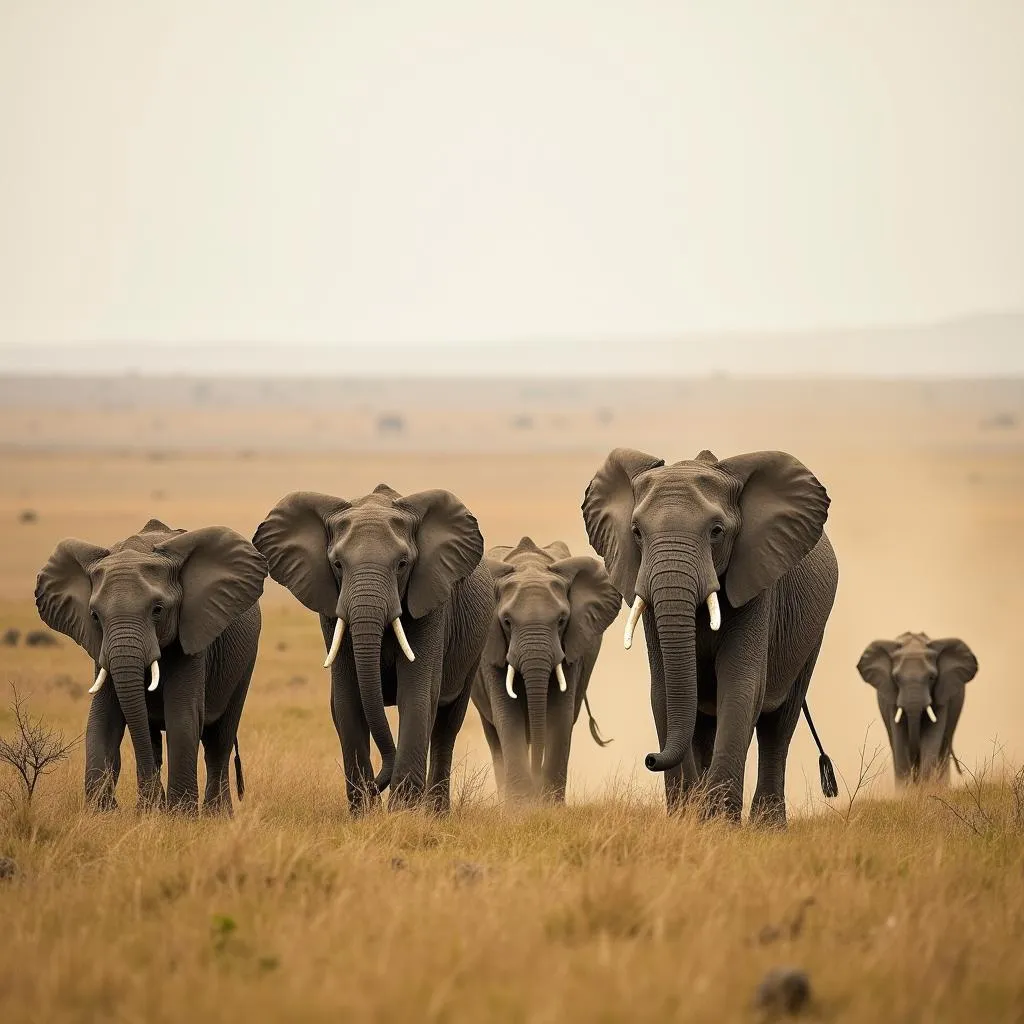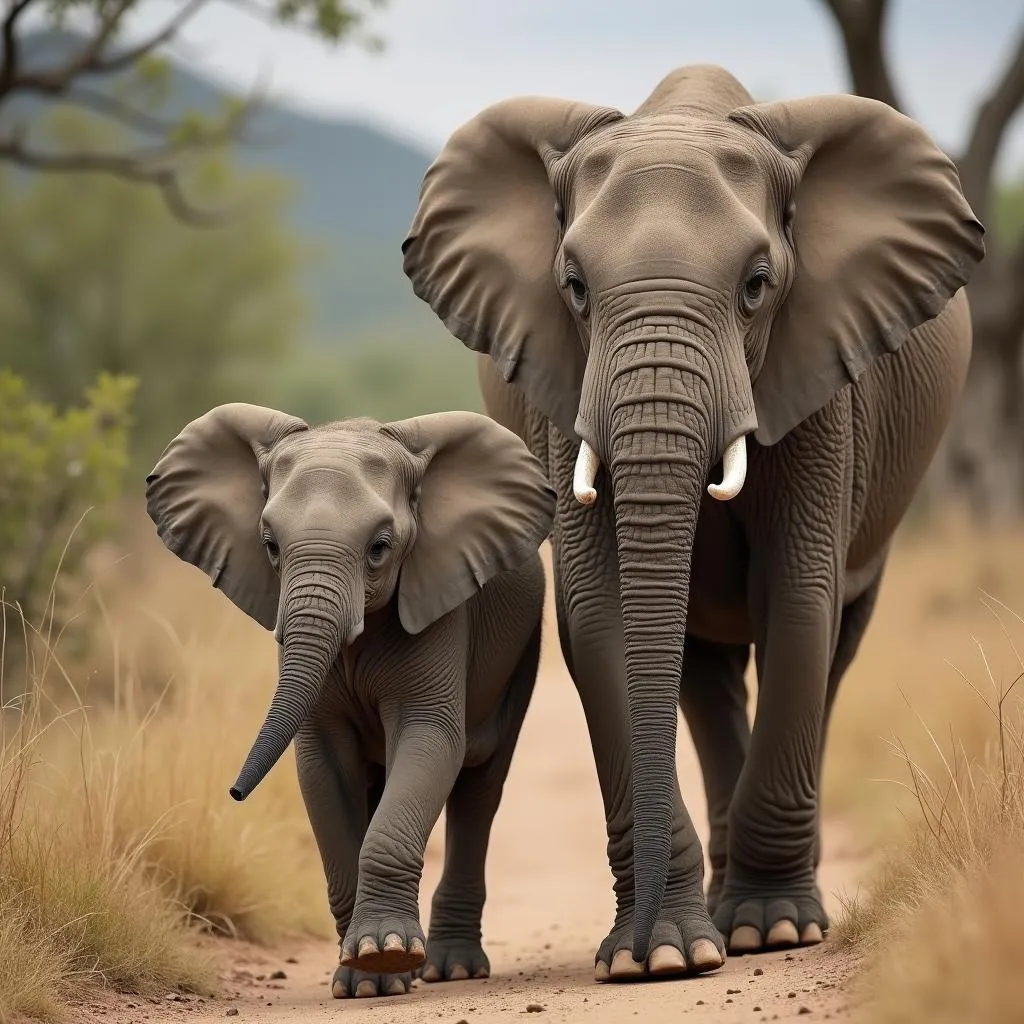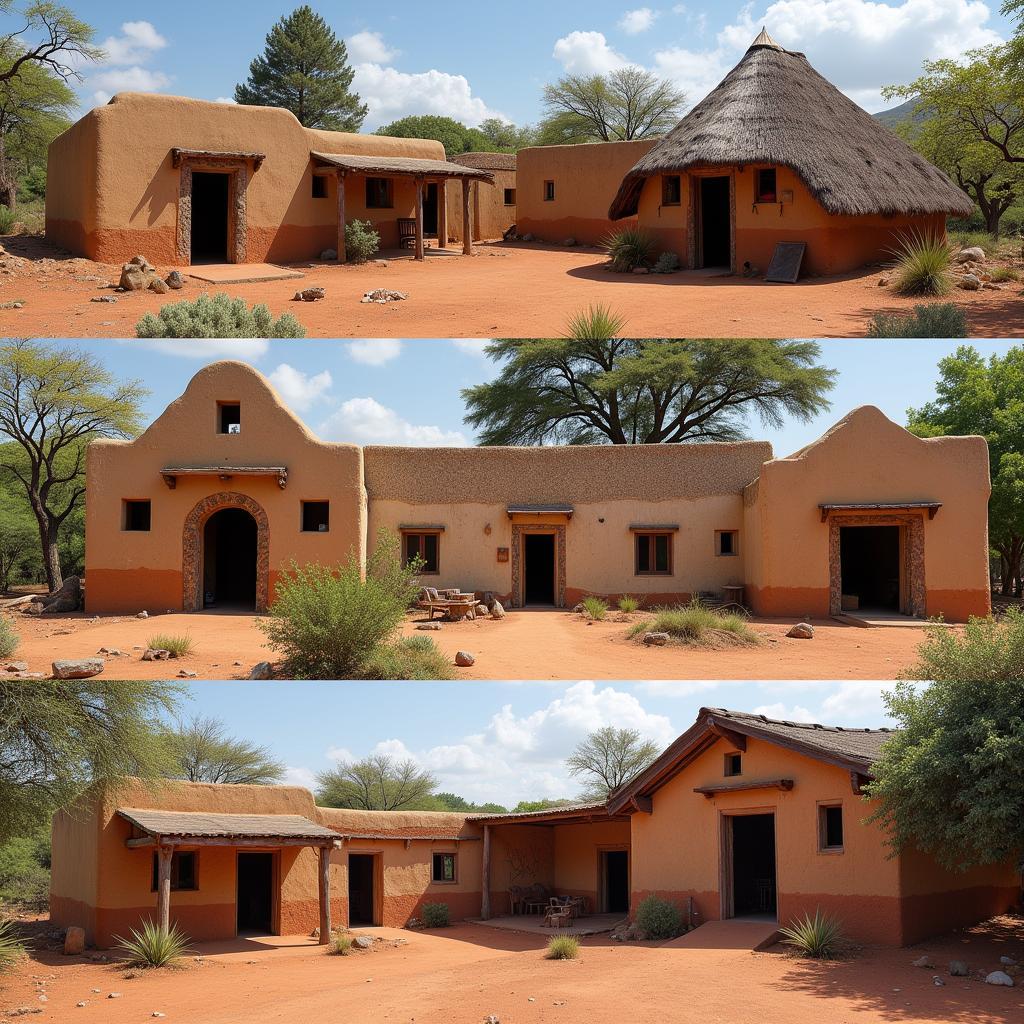The Harsh Reality of “African Elephant Pet”: Why It’s Impossible and Unethical
The idea of having an “African Elephant Pet” might seem intriguing at first. Images of these majestic creatures roaming freely across the savanna evoke a sense of awe and wonder. However, the reality is far from idyllic. Owning an African elephant as a pet is not only practically impossible but also incredibly unethical and harmful.
Why an African Elephant is Not a Pet
While elephants are highly intelligent and social animals, their complex needs and sheer size make them completely unsuitable for domestication. Here’s why:
The Immense Needs of an African Elephant
- Space: African elephants are the largest land mammals, requiring vast areas to roam and forage. A single adult elephant can consume hundreds of pounds of vegetation daily and covers miles in search of food and water. Confining such a creature to a typical home environment would be incredibly cruel.
- Diet: Providing a proper diet for an African elephant is a monumental task. Their diet consists of a wide variety of grasses, leaves, fruits, and bark, demanding a constant and diverse supply.
- Social Interaction: Elephants are highly social animals, living in complex herd structures with strong family bonds. Isolating an elephant from its kind can lead to severe psychological distress and behavioral issues.
 African Elephant Herd
African Elephant Herd - Lifespan: African elephants have a lifespan similar to humans, living for 60 years or more. Taking on the responsibility of caring for an animal with such a long lifespan requires immense dedication and resources.
The Legal and Ethical Concerns
In most parts of the world, owning an African elephant privately is illegal. This is due to the numerous risks associated with keeping such a large and potentially dangerous animal in captivity, as well as the ethical implications of removing them from their natural habitat. The illegal wildlife trade is a serious threat to elephant populations worldwide, and acquiring an elephant as a pet only fuels this cruel industry.
Exploring Alternatives: Appreciating Elephants Ethically
While owning an African elephant is out of the question, there are ethical and fulfilling ways to experience the wonder of these magnificent creatures:
- Support Conservation Efforts: Numerous organizations are dedicated to protecting African elephants in the wild. By supporting these organizations financially or through volunteering, you can contribute to the preservation of these animals for future generations.
 African Elephant Calf with Mother
African Elephant Calf with Mother - Visit Ethical Sanctuaries: Some sanctuaries and reserves provide a safe haven for elephants rescued from the illegal wildlife trade or captivity. Visiting these sanctuaries allows you to observe elephants in a semi-natural environment while supporting their rehabilitation and well-being.
- Educate Yourself and Others: Learning about African elephants, their ecological importance, and the threats they face is crucial in promoting awareness and conservation efforts.
Conclusion: Celebrating Elephants, Protecting Their Future
The dream of an “African elephant pet” is a misguided notion with potentially disastrous consequences. Instead of seeking to confine these magnificent creatures, we must focus on appreciating them in their natural habitat and supporting efforts to protect their future. Remember, the true beauty of an African elephant lies in its freedom and the intricate web of life it helps sustain. Let’s work together to ensure these gentle giants grace our planet for generations to come.
FAQs About African Elephants
1. Can I ride an African elephant ethically?
No, riding elephants is considered unethical and harmful. The training methods used can be cruel, and the act itself can cause physical and psychological stress to the animals.
2. How can I help stop the illegal wildlife trade?
You can support organizations fighting wildlife crime, spread awareness about the issue, and avoid purchasing products made from ivory or other endangered species.
3. Are African elephants endangered?
Yes, both African forest elephants and African bush elephants are classified as endangered by the IUCN.
For further information on African elephants and how you can contribute to their conservation, please explore these articles:
Do you want to learn more about the fascinating world of African wildlife? Discover more captivating articles and resources on our website. Contact our 24/7 customer support at +255768904061 or kaka.mag@gmail.com. We are located in Mbarali DC Mawindi, Kangaga, Tanzania.




